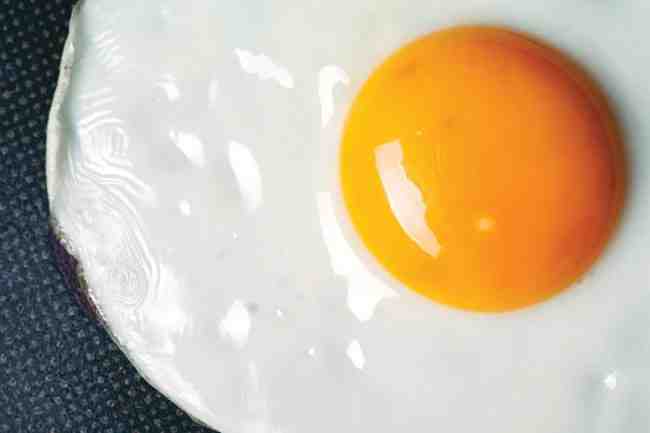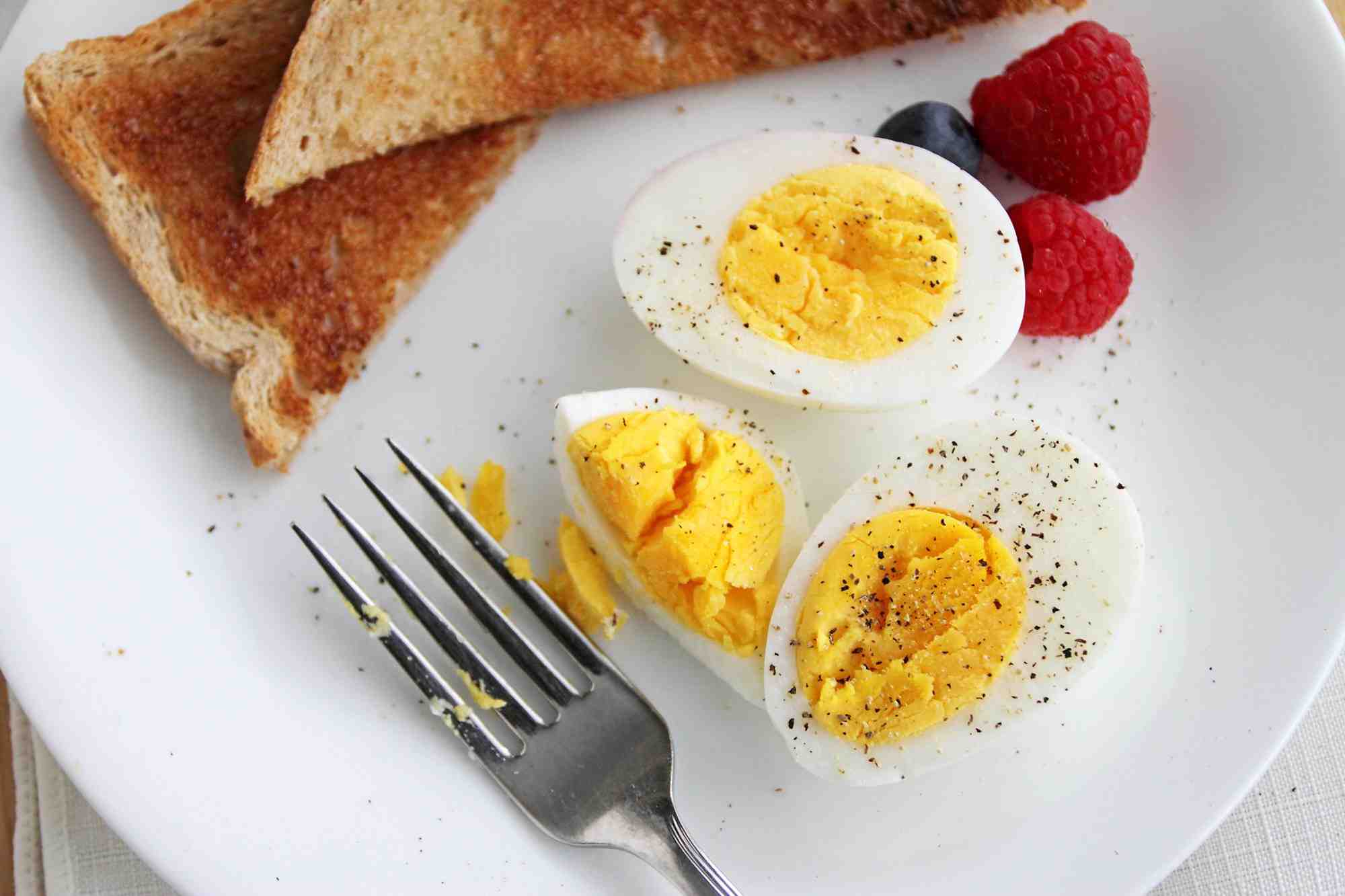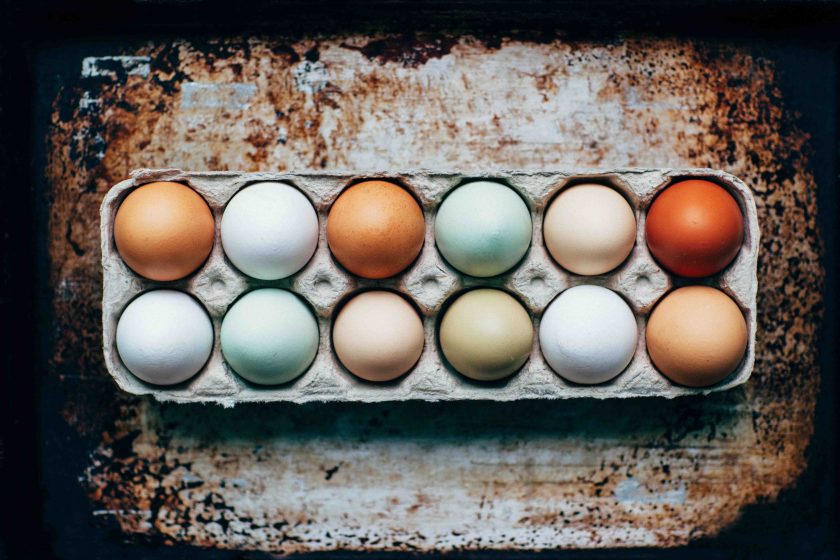Six eggs a day is a lot, no matter how you slice it. One egg has 187 mg of cholesterol, and the recommended limit is 300 mg per day, or just 200 mg if you have diabetes or risk factors for heart disease. “You can definitely go with an egg a day,” says Maxine Smith, R.D., L.D.
Are brown eggs better than white eggs?

People who prefer brown eggs often do so because they believe that brown eggs are healthier and more natural than white eggs. The truth, however, is that all eggs are nutritionally very similar, regardless of their size, grade, or color (2, 7). Both brown and white eggs are healthy foods.
Which eggs are the healthiest? Pasture-Raised Eggs / Pasture-Raised Eggs: Pasture-raised eggs (sometimes referred to as pasture-raised eggs) are the healthiest eggs to buy, hands down. Pasture-raised means that the hens are free to roam and graze freely in a large open pasture.
Why brown eggs are more expensive?
Brown and white eggs are nutritionally identical. The only reason brown eggs cost more is because all that brown pigment requires more food, and more money, to produce.
What is special about brown eggs?
Both brown eggs and white eggs have the same structure, different chickens produce different colored eggs. A hen with brown feathers and red earlobes will likely lay brown eggs, while a hen with white feathers and white earlobes will produce white eggs.
Why Are brown eggs more money?
Reddish-brown chickens are larger and eat more feed, which makes them more expensive to keep and increases the price of their eggs. White and brown eggs are the same in all other respects: there is no nutritional difference between them.
Why do chefs use brown eggs instead of white?
The biggest difference in taste comes down to freshness, and brown eggs are sometimes fresher as they tend to come from local farmers and arrive at your supermarket with that local punctuality.
What’s the difference between brown eggs and white eggs?
Other than the color of the eggshell, there is little difference between brown and white eggs. The color of the egg shell depends on the breed of the hen. Generally speaking, white-shelled eggs come from hens with white feathers, while brown-shelled eggs are produced by hens with brown feathers.
Are brown eggs better for baking than white eggs?
But aside from that caveat, a brown egg or a white egg will give you the same amount of nutrition, taste the same, and are equally delicious in quiches and pies. The two also have roughly the same shell thickness.
What is special about brown eggs?
Both brown eggs and white eggs have the same structure, different chickens produce different colored eggs. A hen with brown feathers and red earlobes will likely lay brown eggs, while a hen with white feathers and white earlobes will produce white eggs.
Why is brown eggs more expensive?
Reddish-brown chickens are larger and eat more feed, which makes them more expensive to keep and increases the price of their eggs. White and brown eggs are the same in all other respects: there is no nutritional difference between them.
What are the benefits of brown eggs?
When it comes to calories, they’re both the same, but the overall nutritional value of eggs depends on the environment of the chicken. Brown eggs are slightly higher in omega-3 than white eggs, but the difference is not that great. The protein and cholesterol content of both eggs is the same.
Are microwave eggs healthy?

Microwaved eggs are just as healthy, if not more so, than baked eggs. Depending on how long you cook them and what you cook them with, you can maximize the nutrition of an egg by using a microwave. Certified food scientist Guy Crosby, Ph.
Can I cook egg in microwave? Yes, it is safe to cook eggs in the microwave, whether you want to poach, scramble, or “fry” the eggs. Sometimes microwaved eggs taste even better than eggs on the stovetop.
How long does it take to microwave 2 eggs?
For 2 eggs in a bowl: Microwave on high for 1 minute. Let stand 1 minute covered before removing dish to check for doneness. If necessary, re-cover and continue microwaving in 15-20 second intervals until cooked to your preference.
How long do eggs take to cook in microwave?
The water should cover the egg completely. Cover the bowl with a microwave-safe plate. Microwave the egg for 30 seconds.
Can you microwave an egg for 30 seconds?
Twist to secure. For soft-boiled eggs: Microwave on high (100% power) for 30 seconds or on medium (50% power) for 50 seconds. Let sit for 30 seconds before removing plastic wrap or lid. If it’s still not cooked through, flip the egg over into the bowl, cover, and microwave for another 10 seconds, or until cooked as desired.
What is the healthiest way to eat eggs?

In general, shorter, lower-temperature cooking methods cause less cholesterol oxidation and help retain most of the egg’s nutrients. For this reason, poached and hard-boiled eggs (either hard or soft) can be the healthiest to eat. These cooking methods also don’t add unnecessary calories.
What is the best way to eat eggs for protein? To get the most protein from eggs without consuming added saturated fat, boil or poach them, or cook them in a small amount of healthy unsaturated fats, such as olive oil, instead of butter.
Are boiled eggs healthier than fried eggs?
Hard boiled eggs are more nutritious than other types of eggs because they are cooked without oil or butter, which adds extra calories and fat to the finished product. By comparison, a large fried egg contains 90 calories and 6.83 grams of fat, of which 2 grams are saturated.
Are boiled eggs less calories than fried?
calories Both fried and boiled eggs are high in calories. The fried egg has 26% more calories than the boiled egg: the fried egg has 196 calories per 100 grams and the boiled egg has 155 calories. For macronutrient ratios, the boiled egg is heavier in protein, lighter in fat, and similar to the fried egg in carbohydrates.
Is boiled egg better than fried egg for weight loss?
Choose a low-calorie cooking method If you’re trying to cut calories, choose hard-boiled or poached eggs. These cooking methods don’t add extra calories from fat, so the meal will have fewer calories than fried or scrambled eggs or an omelette.
Are scrambled eggs healthy?
In and of themselves, scrambled eggs are a healthy dish. Eggs are rich in protein, as well as B vitamins and vitamin D; Eggs also contain heart-healthy unsaturated fats. However, when butter, cream, cream cheese, or grated cheese is added, the calories, cholesterol, and fat content increase.
Why are scrambled eggs unhealthy?
However, when eggs are cooked at high temperatures, the cholesterol they contain can oxidize to produce compounds known as oxysterols (13, 14). This is a concern for some people, as oxidized cholesterol and oxysterols in the blood have been linked to an increased risk of heart disease (15, 16).
Is it OK to eat scrambled eggs everyday?
Most healthy people can eat up to seven eggs a week without affecting their heart health. Some choose to eat only the egg white and not the yolk, which provides some protein without cholesterol.
Whats healthier scrambled or fried egg?
Since scrambled eggs cook better than fried eggs (assuming the yolks of fried eggs are runny), they are potentially more digestible, and you’ll get more value from the protein they contain.
What has more protein scrambled or fried eggs?
A fried egg contains the same amount of protein as a hard-boiled, scrambled, hard-boiled, too-easy, or raw egg scrambled in a glass of tomato juice. But the protein in a fried egg will be easier to digest and absorb than that in a raw egg.
Are fried eggs healthy?
Like eggs cooked in other ways, fried eggs are rich in nutrients and can contribute to a healthy diet when eaten as part of a balanced meal.
What are the negative effects of eating eggs?

This can cause many problems like bloating, vomiting, and stomach problems. Eating too many eggs can cause adverse effects. Being a rich source of protein, consuming it in excessive amounts can negatively affect the kidneys. Many people are allergic to eggs, so the use of eggs should be avoided.
Who should not eat eggs? 5. Excessive consumption of eggs is related to cardiovascular problems. It seems obvious, and it is: eggs are foods rich in cholesterol, and a high consumption of this substance increases the incidence of cardiovascular diseases, including heart problems and strokes, which increases the risk of death.
What are the side effects of eating too much eggs?
5 side effects of eating too many chicken eggs
- Body cholesterol increases. In a large egg contains 186 mg of cholesterol. …
- Cardiovascular risk. High cholesterol levels in the body can affect heart health. …
- Stomach swollen. …
- Insulin resistance. …
- Boils or pimples appear.
What are the negative effects of eating eggs?
The fat and cholesterol found in eggs can harm heart health and lead to diabetes, as well as prostate and colorectal cancer.
How many eggs a day is too much?
For most healthy adults, it is safe to eat 1 to 2 eggs a day, depending on how much other cholesterol is in your diet. If you already have high cholesterol or other risk factors for heart disease, it may be best to eat no more than 4 to 5 eggs per week.
What will happen if you eat eggs everyday?
Eating eggs leads to elevated levels of high-density lipoprotein (HDL), also known as “good” cholesterol. People who have higher levels of HDL have a lower risk of heart disease, stroke, and other health problems. According to one study, eating two eggs a day for six weeks increased HDL levels by 10%.
Will you gain weight if you eat eggs everyday?
Eating eggs, especially for breakfast, can be a great addition to a healthy weight-loss diet. Eggs don’t help you gain weight; what helps in weight gain is a caloric surplus. If you consume more eggs than your maintenance calories, you will have a caloric surplus and gain weight.
Is it OK to eat eggs every day?
Healthy people can include up to one whole egg per day in a heart-healthy dietary pattern. For older adults, due to the fact that eggs have tremendous nutritional benefits, are convenient and affordable, the recommendation is up to 2 eggs per day within a heart-healthy dietary pattern.
What are the disadvantages of having eggs?

Eggs are a source of saturated fat, and too much saturated fat has been shown to raise total cholesterol and LDL (bad) cholesterol levels, risk factors for cardiovascular disease.
What are the disadvantages and advantages of eating eggs? Eggs also boast a rich nutritional profile and low calorie count: They provide a variety of vitamins, minerals, and other nutrients and contain just 72 calories per large egg. However, eggs also have some nutritional drawbacks, so you should consume them in moderation as part of a balanced diet.
Is it harmful to eat eggs every day?
Healthy people can include up to one whole egg per day in a heart-healthy dietary pattern. For older adults, due to the fact that eggs have tremendous nutritional benefits, are convenient and affordable, the recommendation is up to 2 eggs per day within a heart-healthy dietary pattern.
How many eggs is OK per day?
The American Heart Association recommends up to one egg a day for most people, less for people with high blood cholesterol, especially those with diabetes or risk of heart failure, and up to two eggs a day for older people with normal cholesterol levels and who eat a healthy diet.
What happens when you eat eggs everyday?
Eating eggs leads to elevated levels of high-density lipoprotein (HDL), also known as “good” cholesterol. People who have higher levels of HDL have a lower risk of heart disease, stroke, and other health problems. According to one study, eating two eggs a day for six weeks increased HDL levels by 10%.
What is the healthiest oil to fry an egg in?
Eating healthy should still be delicious. I typically fry eggs in canola or vegetable oil: neutral-flavored fats with a high smoke point, meaning you can cook the egg over medium-high heat and not worry about the oil smoking and flavoring it to the egg.
Can fried eggs be healthy? Like eggs cooked in other ways, fried eggs are rich in nutrients and can contribute to a healthy diet when eaten as part of a balanced meal.
What is the best fat to fry eggs in?
For the most delicious fried egg, use bacon grease (but you knew that, right?). For the softest edges without compromising flavor, olive oil is your best bet. If you’re looking for something silkier, go for butter. And if you’re ready to reconsider what a fried egg really is and what it can be, use cream.
What is the healthiest fat to cook eggs in?
“Cooking eggs with minimal fat or using unsaturated fats like olive oil or avocado oil are healthier alternatives.
Is it better to fry eggs in butter or olive oil?
Cooking eggs in olive oil gives better results! Fried eggs have perfectly crisp edges and scrambled eggs have a silky smooth texture. In addition, you will also get the health benefits of olive oil. So it’s good for your taste buds, and the rest of your body too!
Is it healthier to fry eggs in butter or olive oil?
Cooking eggs with olive oil is considered a healthy alternative to butter. Olive oil contains monounsaturated fats that can help lower total cholesterol, benefit insulin levels, normalize blood clotting, and reduce the risk of heart disease.
Is it better to fry eggs in butter or olive oil?
Cooking eggs in olive oil gives better results! Fried eggs have perfectly crisp edges and scrambled eggs have a silky smooth texture. In addition, you will also get the health benefits of olive oil. So it’s good for your taste buds, and the rest of your body too!
What is the healthiest way to fry an egg?
“Cooking eggs with minimal fat or using unsaturated fats like olive oil or avocado oil are healthier alternatives. Hard-boiled or poached eggs are ways to prepare eggs without the need for extra fat!” Tomaino says.
Is it better to fry eggs in oil or butter?
Many fans of fried eggs say that butter is the best. Thanks to its high concentration of fat, butter has a unique flavor and creamy texture. It is ideal for frying on high heat and can prevent eggs from sticking to the pan.
What is the most unhealthy way to cook eggs?
It goes without saying that those methods of cooking eggs are the healthiest ones that involve the least amount of fat or oil or fat. So for weight loss, fried eggs are probably the least healthy. This leaves out boiling, poaching, stirring, microwaving, and turning them into tortillas.
Sources :
